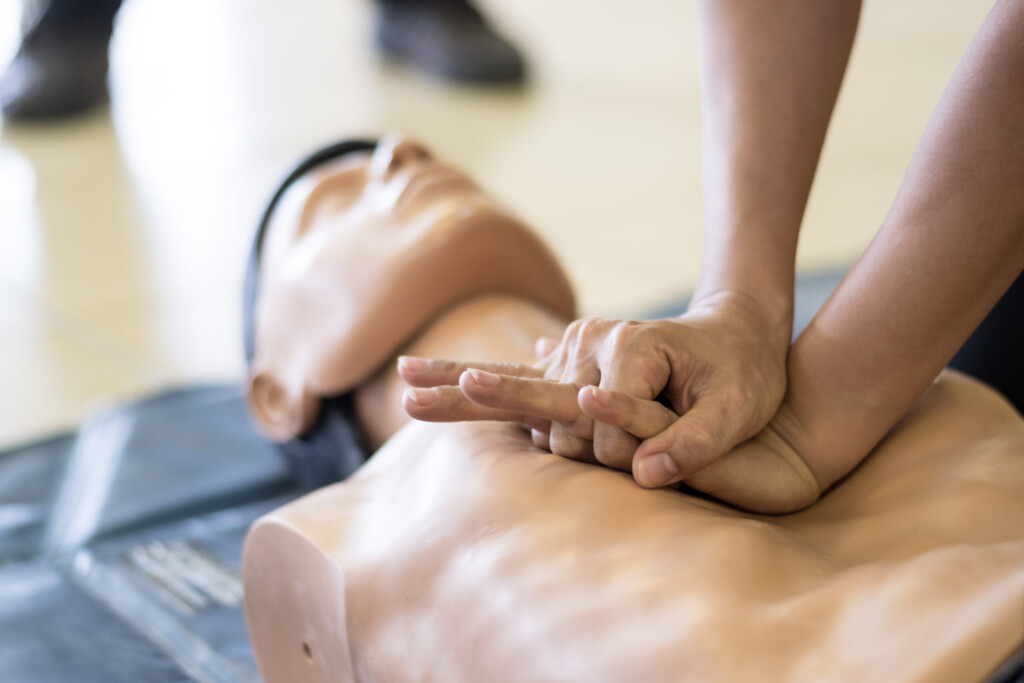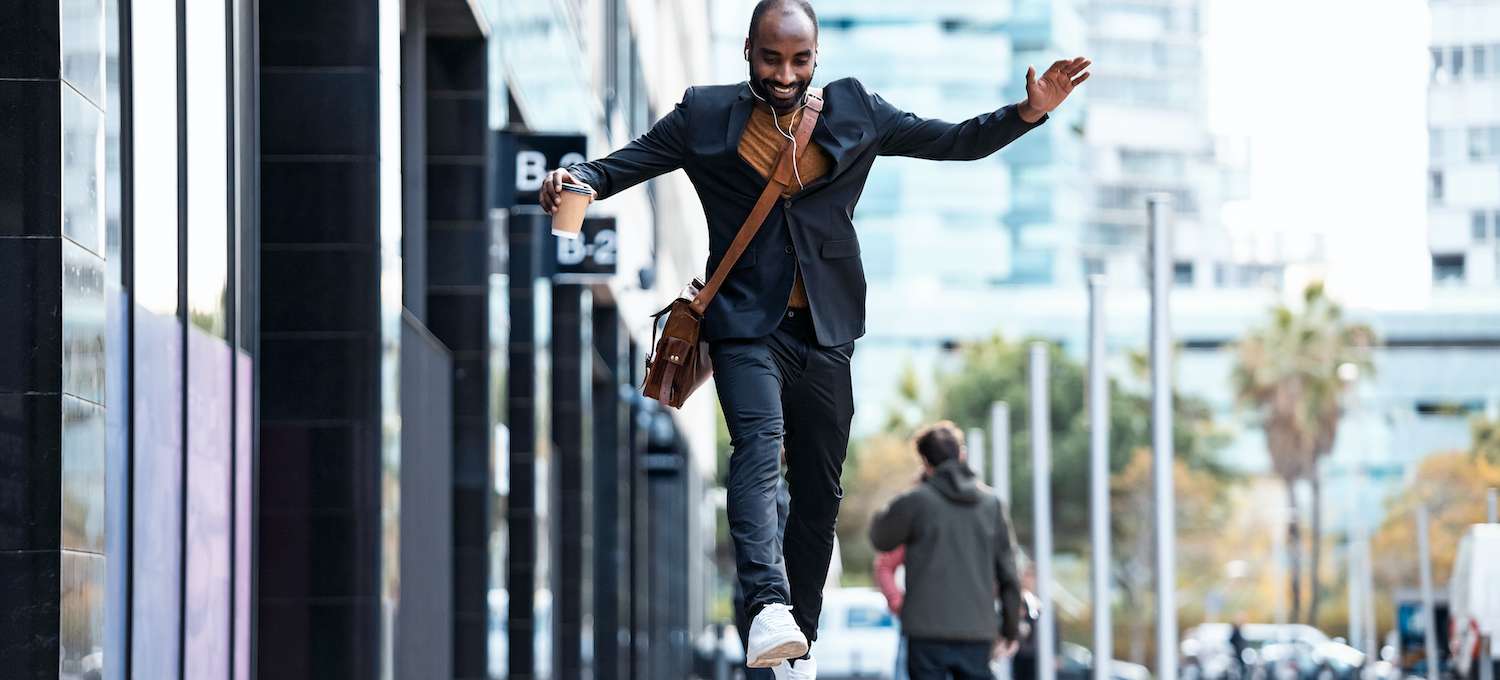
In August 2021, Dr. Bryan O. Buckley — a member of the board of directors for the American Heart Association’s Increased Washington Area — helped help save a man’s existence by administering CPR when he collapsed suddenly alongside A few Notch Path in St. Mary’s County.
Buckley recalled that Christopher Holton, a Black male in his early 50s, went into cardiac arrest on the path. Holton was “gasping for air,” Buckley explained, and when there had been other bystanders all-around at the time, no 1 arrived forth to attempt to provide initial help.
Buckley mentioned he experienced very last done CPR some 10 several years back at the time. He asked the bystanders if any of them understood how to complete CPR, and when a single female stated she did, she agreed to immediate Buckley on how to give first assist. He then executed CPR on Holton for about 20 minutes, until eventually unexpected emergency health-related providers arrived. Holton survived the incident.
Holton’s knowledge along A few Notch Path tracks with a new report highlighted by the American Heart Affiliation, which observed that Black and Hispanic grown ups are fewer probable to obtain CPR in general public for the duration of a cardiac arrest than white Us residents.
Researchers analyzed a lot more than 110,000 information of out-of-healthcare facility cardiac arrests from 2013 to 2019, and found that Black and Hispanic grown ups were 41% less possible to get CPR in public than white individuals.
Cardiac arrest is reversible in most victims if taken care of in the initial handful of minutes, Wayne Carter, communications director for the American Coronary heart Association’s Baltimore and Higher Maryland Location, wrote in an e mail to Maryland Issues.
Carter mentioned that when a person’s probabilities of survival can double or triple if they receive immediate CPR, bystander CPR is administered much less than 50% of the time. The American Coronary heart Affiliation estimates that approximately 350,000 men and women endure an out-of-clinic cardiac arrest in the U.S. each individual 12 months.
And Buckley pointed out that when Holton experienced his cardiac arrest on Three Notch Trail, the target, Buckley himself, and Buckley’s buddy with whom he was biking at the time were the only Black people today in the area.
“Anytime a person has a cardiac arrest, it is a scary minute,” Buckley claimed. “When you are Black or Hispanic, it is even scarier, simply because it could be much less probable folks would want to interfere.”
Aspects such as prospective publicity to COVID-19 or probability of injuring a sufferer may possibly also deter bystanders from seeking to offer initially support, he additional.
Holton echoed that sentiment in an job interview with Maryland Matters. The Mechanicsville resident mentioned of his cardiac arrest together the trail, “I’m just blessed that individuals did not just wander in excess of leading of me … I felt blessed that Dr. Buckley and his buddy approached me right after viewing me slide.”
In accordance to Holton, it was swift intervention on the section of Buckley and his close friend that compelled other bystanders to strategy and talk to if he desired aid. “I really don’t indicate to audio so cynical, but I was blessed that it was two African-American males that truly noticed me slide,” he said. “They reacted, and I believe that that their response helped much more persons get involved than just retain going.”
But bystanders would probably be much more relaxed giving 1st assist to victims of cardiac arrest with extra publicity to CPR training, according to Buckley. He recommended, “making positive that individuals in higher faculty and faculties have to do a CPR class … Libraries, I imagine, are brilliant possibilities as well” for men and women to master about CPR or coronary heart health in standard.
Dr. Athol Morgan, director of cardiology at Grace Clinical Heart in Baltimore, explained that communities of color, like the 1 he serves, are normally not provided sufficient academic and schooling resources on how to conduct CPR.
“The coaching to do CPR is a great deal less” in West Baltimore, Morgan stated, incorporating that his follow serves a inhabitants that is about 80% African American. He praised initiatives like Breanna’s Regulation, which has mandated CPR training for significant university pupils in Maryland due to the fact 2015, but pointed out that non-white, reduce socio-economic status communities nonetheless face significant shortages in schooling and assets.
“Everywhere in the environment that persons have looked in other countries in other predicaments, neighborhoods that have much less — fewer revenue, a lot less providers, less of anything — have that disparity” in CPR teaching, according to Morgan.
Each Buckley and Morgan highlighted the position of tele-CPR — in which a 911 dispatcher talks a caller as a result of how to carry out the treatment — as a attainable suggests to address people disparities in CPR administration.
“I do have a affected person who is a cardiac arrest survivor,” Morgan claimed. He recalled that his individual was in her 30s when she had a sudden cardiac arrest at household. “Her sister was there, but her sister did not know CPR,” in accordance to Morgan. “Fortunately, the 911 operator talked her through CPR … and if you met [the patient] today, you wouldn’t know that she’s a cardiac arrest survivor.”
Holton stated he used 14 days recovering from the incident at MedStar Southern Maryland Hospital in Clinton, just before going through physical, speech and cognitive rehabilitation at a facility in Takoma Park. He recalled owning a pacemaker implanted in September in the event of one more cardiac arrest.
“I’m extremely grateful that Dr. Buckley and his friend took action to permit me to be below now,” Holton stated. “I can see my daughter excelling in college, in athletics and in band,” and appear forward to his son’s graduation in November.







